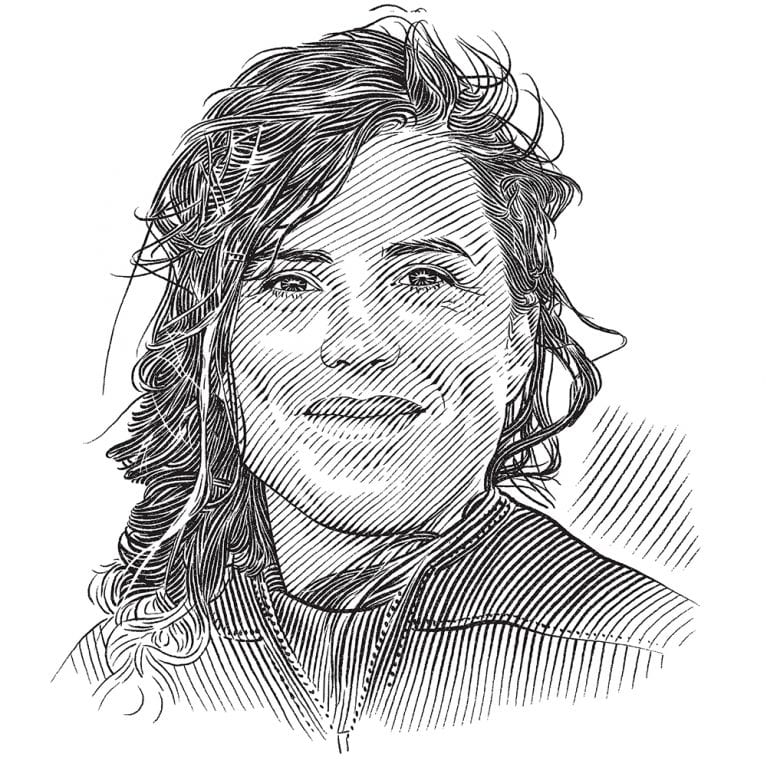Giulia Donati

Who I am
I come from a small town located at the foot of the Swiss Alps, on the shores of Lake Maggiore, so it seems inevitable that it has taken me quite some time to be confident enough to state just who I am. I have always been fascinated, but also somewhat intimidated, by the marine environment, especially during my childhood, and few people close to me would ever have anticipated that I would have pursued a career in marine science. Nevertheless, now more than ever, I identify myself as a ‘sea person’. There is no other place where my mind is as clear, free and at peace as when I am cradled by the waves, drifting with the currents or gathering data on coral reefs. It was surely the opportunities I’ve had to learn about the sea by experiencing it that have driven this personal development. This is how the sea has become more familiar and increasingly fascinating to me. Indeed, as for many others, becoming a marine biologist has always been a utopian dream. Today I realise that, little by little, I have nurtured this dream and let it grow inside me with great passion and a lot of determination. One experience that has been life-changing was the privilege – but also the misfortune – to see the reefs in the Indian Ocean before and after the El Niño event of 2015–2016. Through this experience, I became even more aware of the reefs’ extreme vulnerability. Thus, I feel it is my responsibility to use science in a way that can have a real impact and concretely contribute to the conservation of these precious ecosystems for future generations.
Where I work
I am a PhD student at ETH Zürich (Swiss Federal Institute of Technology) and as a member of the research group Landscape Ecology I work closely with scientists from the MARine Biodiversity, Exploitation and Conservation (Montpellier, France). I am also a member of the ReeFish project. As part of my PhD projects, I have been conducting field work in the Western Indian Ocean, from Mafia Island off the coast of Tanzania to the Maldives, in the north-east of this region. I worked in the Maldives before embarking on my PhD and now, thanks to the SOSF and together with project leader Alina Wieczorek, I have the opportunity to return and collaborate on an urgent environmental issue. Working closely with the Maldives Whale Shark Research Programme (MWSRP,) Alina and I will be based on a local island called Dhigurah (dhigu means ‘long’ and rahmeans ‘island’). Dhigurah is about three kilometres (almost two miles) long, a narrow atoll rim island located in the central west of the Maldives. It lies at the eastern edge of the South Ari Marine Protected Area, the country’s largest protected area and one identified for its importance as a globally significant year-round aggregation site for whale sharks.
What I do
My favourite ‘office’ is beneath the sea surface, where I love to spend hours observing the diversity of fishes inhabiting coral reefs and, occasionally, I’m lucky enough to bump into the largest of all the fishes, the whale shark. Back in the lab, using approaches as diverse as phylogenetics, geometric morphometrics, spatial modelling and population genetic analyses, I investigate the ecological and evolutionary drivers that shape fish biodiversity on coral reefs. In parallel, together with Alina, I investigate the ingestion of microplastics by whale sharks in the Maldives and identify the possible ways in which these giant fishes are exposed to them. Beyond advancing knowledge about whale sharks, this project entails an extensive outreach programme involving local communities, major stakeholders and decision makers. Through a series of specifically designed environmental problem-solving workshops, we aim to discuss the challenges of microplastics in whale shark habitat and use insight-driven science communication to develop collaborative solutions. Furthermore, as whale sharks are charismatic representatives of the marine megafauna, we hope that this project will help to raise awareness of this worldwide environmental issue, enhance marine stewardship and contribute to marine conservation. Ultimately this will benefit not only whale sharks, but also the unique diversity of life found on coral reefs, which is of invaluable importance to us all.
